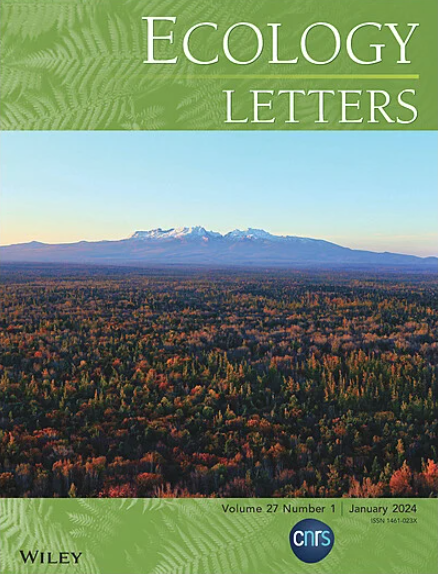Elevated CO2 and N Gradually Weaken the Influence of Diversity on Ecosystem Stability.
IF 7.9
1区 环境科学与生态学
Q1 ECOLOGY
引用次数: 0
Abstract
Biodiversity promotes ecosystem productivity and stability, positive impacts that often strengthen over time. But ongoing global changes such as rising atmospheric carbon dioxide (CO2) levels and anthropogenic nitrogen (N) deposition may modulate the impact of biodiversity on ecosystem productivity and stability over time. Using a quarter-century grassland biodiversity-global change experiment we show that diversity increasingly enhanced productivity over time irrespective of global change treatments. In contrast, the positive influence of diversity on ecosystem stability strengthened over time under ambient conditions but weakened to varying degrees under global change treatments, largely driven by a greater reduction in species asynchrony under global changes. Thus, over 25 years, CO2 and N enrichment gradually eroded some of the positive effects of biodiversity on ecosystem stability. As elevated CO2, N eutrophication, and biodiversity loss increasingly co-occur in grasslands globally, our results raise concerns about their potential joint detrimental effects on long-term grassland stability.CO2和N的升高逐渐削弱了多样性对生态系统稳定性的影响。
生物多样性促进生态系统的生产力和稳定性,这种积极影响往往会随着时间的推移而增强。但是,随着时间的推移,大气二氧化碳(CO2)水平上升和人为氮(N)沉积等持续的全球变化可能会调节生物多样性对生态系统生产力和稳定性的影响。通过四分之一个世纪的草地生物多样性-全球变化实验,我们表明,随着时间的推移,无论全球变化的处理方式如何,多样性都日益提高生产力。多样性对生态系统稳定性的积极影响在环境条件下随着时间的推移而增强,但在全球变化处理下有不同程度的减弱,这主要是由于全球变化下物种不同步程度的降低。因此,在25年的时间里,CO2和N的富集逐渐侵蚀了生物多样性对生态系统稳定性的一些积极作用。随着CO2升高、N富营养化和生物多样性丧失在全球草原上日益共同发生,我们的研究结果引起了人们对它们对草地长期稳定的潜在联合有害影响的关注。
本文章由计算机程序翻译,如有差异,请以英文原文为准。
求助全文
约1分钟内获得全文
求助全文
来源期刊

Ecology Letters
环境科学-生态学
CiteScore
17.60
自引率
3.40%
发文量
201
审稿时长
1.8 months
期刊介绍:
Ecology Letters serves as a platform for the rapid publication of innovative research in ecology. It considers manuscripts across all taxa, biomes, and geographic regions, prioritizing papers that investigate clearly stated hypotheses. The journal publishes concise papers of high originality and general interest, contributing to new developments in ecology. Purely descriptive papers and those that only confirm or extend previous results are discouraged.
 求助内容:
求助内容: 应助结果提醒方式:
应助结果提醒方式:


